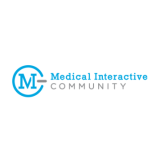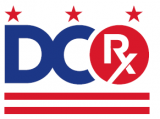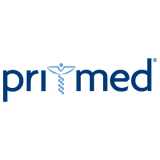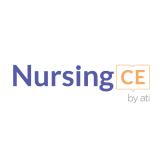Controlled Substances Series: Drug Diversion Prevention

Prescription drug diversion is a serious problem and fuels the current US epidemic of drug misuse, abuse, and addiction. Healthcare practitioners need to be able to identify and prevent drug diversion in their practices, by patients or staff members.
Category
- Drug Diversion
Format
- Self-study / Enduring
Credits
- 0.75 AMA PRA Category 1 Credit™
- 0.75 ANCC
Human Trafficking: A Public Health Crisis

Human trafficking is a major public health problem, both domestically and internationally. Healthcare providers are often the only professionals to interact with trafficking victims who are still in captivity.
Category
- Human Trafficking
Format
- Self-study / Enduring
Credits
- 2.00 AMA PRA Category 1 Credit™
Ethics in Healthcare: Exploring Bioethics, Clinical Ethics, and Health Equity

Dr.
Category
- Medical Ethics
Format
- Self-study / Enduring
Credits
- 1.00 AMA PRA Category 1 Credit™
HIV/AIDS for Healthcare Professionals (Florida Relicensure)

Since the first patients with AIDS were reported in 1981, HIV infection has developed into one of the greatest pandemics in modern times, with devastating socioeconomic and demographic consequences.
Category
- Infectious Diseases
Format
- Self-study / Enduring
Credits
- 2.00 AMA PRA Category 1 Credit™
Embracing the Journey: End of Life and Palliative Care

All seriously ill patients can benefit from palliative care principles in the primary care setting. This session is designed to offer clinicians the information and skills needed to provide high-quality primary palliative care to patients with serious illness.
Category
- Palliative Care
- End of Life Care
Format
- Self-study / Enduring
Credits
- 1.00 AANP Contact Hours
- 0.75 AANP Pharmacology Contact Hours
- 1.00 AMA PRA Category 1 Credit™
Tick-Borne Diseases

Vector-borne diseases are spread by arthropods such as ticks, mosquitoes, or fleas. In the U.S., ticks are the number one vector responsible for transmission to humans. These tickborne diseases are challenging to diagnose as they often have non-specific symptoms.
Category
Format
- Self-study / Enduring
Credits
- 1.00 AMA PRA Category 1 Credit™
- 1.00 ANCC
Early Detection and Diagnosis of Mild Cognitive Impairment and Alzheimers Disease

In the context of a patient case presentation, expert faculty will highlight the stages of Alzheimer disease (AD) and the vital importance of early detection of mild cognitive impairment (MCI).
Category
- Cognitive Impairment
Format
- Self-study / Enduring
Credits
- 0.58 AANP Contact Hours
- 0.50 AMA PRA Category 1 Credit™
Approaching Early Alzheimer Disease in Primary Care: Prompt Identification and Emerging Therapies

Catching Alzheimer disease early is critical, yet studies show that 40% of cases may be missed.
Category
- Alzheimer’s Disease
- Cognitive Impairment
- Pharmacology
Format
- Self-study / Enduring
Credits
- 1.00 AANP Contact Hours
- 0.33 AANP Pharmacology Contact Hours
- 1.00 AMA PRA Category 1 Credit™
Opioids and Opioid Use Disorder: A Case-Based Approach to Manage Pain During The Opioid Epidemic

Immerse yourself in a case-based exploration of the complex landscape surrounding opioids and opioid use disorder.
Category
- Opioid Use Disorder (OUD)
- Prescribing: Opioid(s)
- Pharmacology
Format
- Podcast
Credits
- 0.77 AANP Contact Hours
- 0.77 AANP Pharmacology Contact Hours
- 0.75 AMA PRA Category 1 Credit™
Alzheimer’s Disease Nursing CE Course for APRNs

This course reviews Alzheimer's disease, including relevant statistics, pathophysiology, screening, diagnostic criteria, and pharmacologic and non-pharmacologic treatment strategies.
Category
Format
- Self-study / Enduring
Credits
- 3.00 ANCC

 Facebook
Facebook Twitter
Twitter LinkedIn
LinkedIn Forward
Forward